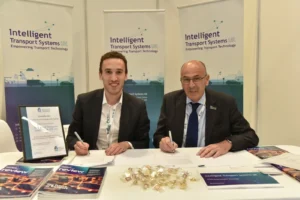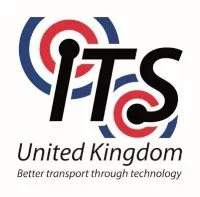The head of the UK’s Intelligent Transport Society says she’s “thrilled” that the UK will continue to be part of European Horizon projects post Brexit.
ITS (UK) Secretary General Jennie Martin was reacting to the news that British firms and academics will be fully eligible to participate in, and receive funding from the EU for, the new Horizon Europe projects, as part of the UK’s deal agreed with the EU on Christmas Eve.
In the previous Horizon 2020 scheme, UK experts worked with continental colleagues on a range of research activities including InterCor testing cross-border interoperability of Cooperative Intelligent Transport Services on the M2 and A2 and C-MobILE in a number of European cities including Newcastle, building C-ITS partnerships and carrying out cost-benefit analyses and developing business models to ensure C-ITS services do the right job for the end user. Other projects include those in rail, energy, training and smart green mobility, where the eHUBS project researches solutions to speed up the adaption of shared and electric mobility services.
“Our members have benefitted significantly by sharing research with counterparts across Europe,” explained Jennie Martin. “There was significant concern among some of them that they would be locked out of future projects, so I am thrilled agreement has been reached, and appreciate the work done by UK and European negotiators to come to this pragmatic solution.”
The agreement commits the UK contribute towards funding the Horizon Europe projects, meaning British-based researchers can bid for money alongside EU members. The UK has a team of National Contact Points whose role is to support all UK organisations seeking to participate in Horizon Europe. During Horizon 2020, the UK had a 15% success rate, compared with a Europe wide average of 12%. To date €7.1 billion has been awarded in Horizon 2020.
The Department for Transport’s Chief Scientific Adviser Professor Phil Blythe added, “I am delighted that the UK will associate with the EU’s Horizon Europe R&D programme. Research and innovation is an international endeavour and the Covid-19 pandemic has made this clear. The UK ITS community has a long history of collaboration with European partners and I am glad we can continue to build on this with this new agreement. Indeed, in making the case for participation in the EU programmes we provided some compelling examples of how some previous EU funded ITS-focused research and demonstration projects in the UK have transformed transport provision and addressed local challenges, such as safety, congestion, air quality and decarbonisation, which led to a number of UK cities and their ITS partners being regarded as world leading exemplars in the field. I’d encourage ITS UK members who have not looked at the opportunities of EU R&D funding to consider these opportunities in the future.”
(Picture – European Union)























